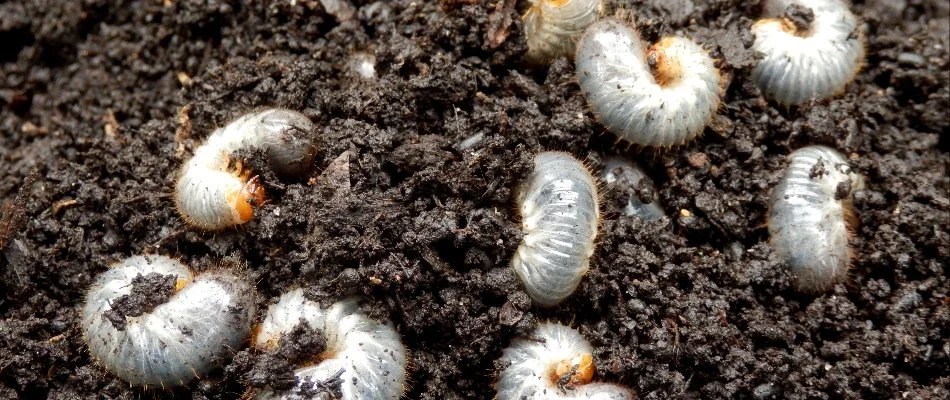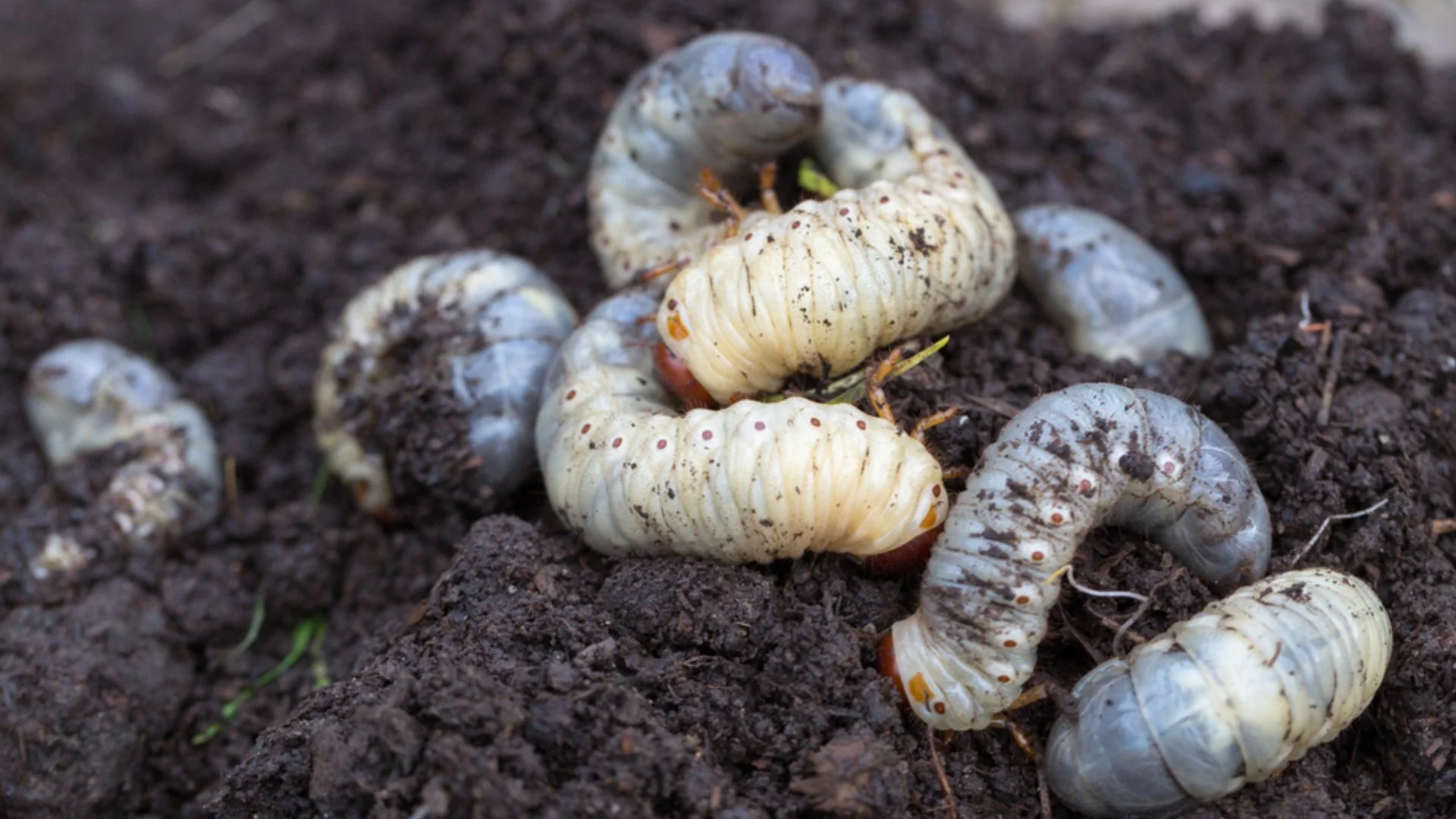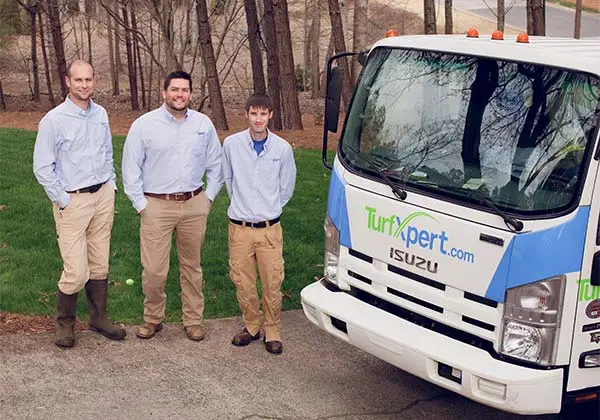Grubs are pesky little critters that live in the soil in much of Georgia. They go through a life cycle, starting as eggs that are laid in the soil, then hatching into larvae that feed on the roots of grass and cause damage to lawns. As they grow, grubs pupate and eventually emerge as adult beetles. To deal with a current infestation, it’s recommended to schedule a curative treatment with a lawn care professional. However, the best way to avert a grub infestation altogether is with preventative treatments. Applying these treatments at the right time disrupts the grubs’ life cycle, stopping them before they become a problem. Stay proactive with yearly preventative treatments to ensure a grub-free lawn and enjoy a healthy and beautiful lawn.
What are grubs and what is their life cycle?

Grubs are the larval stage of beetles, and they live beneath the surface of the soil. They might not look like much at first glance, but don't be fooled by their unassuming appearance. These tiny creatures play a significant role in the ecosystem and can have a big impact on your lawn.
The life cycle of grubs begins when adult beetles lay eggs in the soil during the warm months, typically in the spring or early summer. These eggs hatch into small, C-shaped larvae known as grubs. Grubs are voracious feeders, consuming the roots of grass and other plant material as they grow. They spend several weeks or months underground, munching away and gradually maturing.
As they reach full size, grubs transform into pupae, a stage of development where they undergo remarkable changes before emerging as adult beetles. Once the transformation is complete, adult beetles emerge from the soil, ready to start the cycle all over again by laying eggs and starting a new generation of grubs.
The best way to protect your lawn from grubs is by scheduling preventative treatments.

The best way to handle grubs is to take a proactive approach with preventative grub control treatments. By applying this type of treatment to your lawn before the eggs hatch and the grubs start feeding, you can disrupt their life cycle and prevent significant damage to your grass.
Preventative treatments are designed to eliminate grubs before they have a chance to start feeding, so they'll never get the chance to damage your lawn! By addressing the problem early on, you can avoid the headache and frustration of dealing with a full-blown grub infestation later in the season. Preventative treatments offer the most effective and least invasive solution to keep grubs at bay and protect the health and beauty of your lawn.

Preventative grub control treatments are typically applied during the late spring or early summer, coinciding with the time when adult beetles lay their eggs.
If you're dealing with a current grub infestation, schedule a curative treatment ASAP!
If you've already discovered grubs in your lawn and are facing a current infestation, don't worry—there are still options to address the issue. Curative treatments target the existing grub population and are typically applied during late summer or early fall when the grubs are actively feeding near the soil surface. These treatments are designed to eliminate grubs and limit the damage they can cause to your grass.
Give us a call today to schedule our curative or preventative grub control treatments!
If grubs have infested your lawn, or if you're looking to prevent them from causing a problem in the first place, we are the team to turn to. At TurfXpert, we offer curative grub control treatments that can stop a grub infestation in its tracks, and we also offer preventative treatments that will prevent them from infesting your lawn in the first place. We offer this service to commercial and residential properties, as well as HOAs, in Woodstock, GA, and surrounding communities like Roswell and Alpharetta. Give us a call today at (833) 444-8873 to schedule our grub control service!




Comments (0)
Thanks for your comment!
Thanks for your feedback! Your comments have been successfully submitted! Please note, all comments require admin approval prior to display.
Error submitting comment!
There is a problem with your comment, please see below and try again.